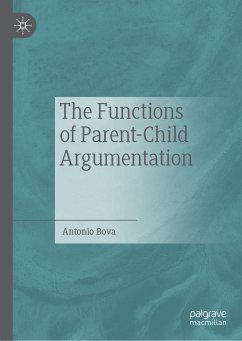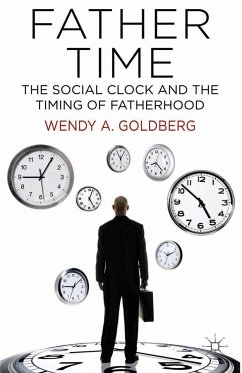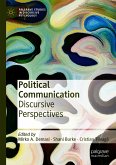This book provides a detailed examination of argumentative interactions in families with young children during mealtimes. It explores both the restrictions and the opportunities family mealtimes present and the types of issues addressed through argumentative discussions. Antonio Bova puts forward an in depth analysis of how both parents and children contribute to the inception and development of an argumentative discussion, and the categories of argument adopted most often by the two groups. Drawing upon a wealth of qualitative data from the recorded mealtime conversations of Italian and Swiss-Italian middle-class families, the author examines the crucial importance of argumentative interactions between parents and children during mealtimes. This book builds on recent advances in the study of the psychology of social interaction and sheds new light on the importance of argumentation at all stages of life.
Antonio Bova is Assistant Professor of Social Psychology of Communication at Università Cattolica del Sacro Cuore, Italy. His research interests revolve around the psychological concern for social interactions at different levels, and the study of argumentation in contexts characterized by a substantial prevalence of interpersonal interactions. He is co-editor of the book Interpersonal Argumentation in Educational and Professional Contexts together with Francesco Arcidiacono.
Dieser Download kann aus rechtlichen Gründen nur mit Rechnungsadresse in A, B, BG, CY, CZ, D, DK, EW, E, FIN, F, GR, HR, H, IRL, I, LT, L, LR, M, NL, PL, P, R, S, SLO, SK ausgeliefert werden.









